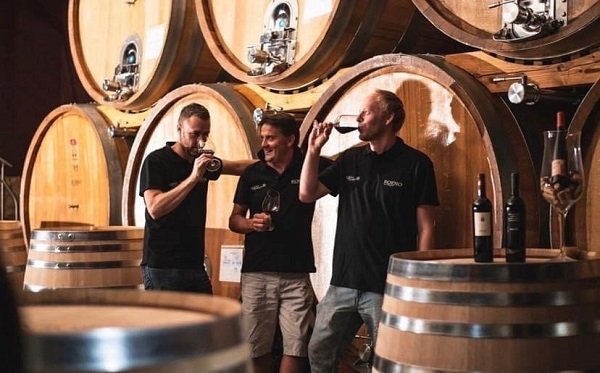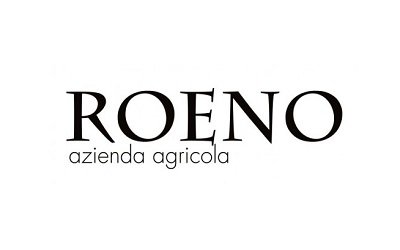The Fugatti siblings, Cristina, Roberta and Giuseppe, with the new generation already coming into the business, set their sights on Riesling Renano a decade ago and achieved some really interesting results.
Riesling Renano for Roeno is a family affair. On the border between Veneto and Trentino, the family in question is the Fugatti. Two sisters, Cristina and Roberta, and a brother, Giuseppe, plus the third generation already at work represented by Martina Centa.

“The Fugatti are crazy.” is a kissable rhyme, but that certainly was not the goal of all those who, when faced with the family’s choice to plant Riesling Renano began to express doubts, more or less softly, about their decision. But, brothers thirsty for challenge (and Riesling, let’s face it…) in 2005, having taken the necessary steps, the thoughts of others did not help to stop them. And thank goodness, otherwise today we would not have one of the most internationally interesting Italian Rhine Rieslings without a shadow of a doubt.
It took a while but not very long to find the right style, which in some respects is still work in progress since the times in viticulture are long, you know. I myself confess that I did not understand it right away; the last few vintages have come to my rescue to arrive at some right insights and at least a couple of valuable verticals.
Once again nothing happens by chance; this is confirmed to us by the cores, the study of clones and the choice of rootstocks made before planting the vineyard on the slopes of Mount Baldo. Beloved Baldo, mountain scenery that is also home to viticulture. “Not everything grows here, but everything that grows has personality” is a statement I made at a conference precisely dedicated to this territory, and I think it fits perfectly if we are talking about this wine. If the initial reference was the Mosel wines, what instead are the identifying elements of the Roeno style and the “Italian” style evidently are that right balance between cool character and Mediterranean character.
A Riesling with a Mediterranean personality

Let me explain, it almost seems as if the Fugatti’s this Riesling son of cold climates and high latitudes compared to ours (between the 45th and 46th parallels) have domesticated it making it slightly more tame, certainly more Mediterranean. Le alpine notes, cold and vertical, at times (especially in some vintages) they are balsamic to the point of recalling sage and rosemary. The yellow fruit Is there and is ripe. The citrus are intense. Before being hydrocarburic, they are warm and the offspring of a sun and a climate that, thanks to the proximity of Lake Garda and thanks to the winds that rise and fall caressing the flanks of Mount Baldo, knows how to be harsh but also tame.
However, all that glitters is not gold, in fact sunburn or otherwise excessive exposure can be detrimental to the evolution and accumulation of aromas in our Riesling compromising the buildup of fruitiness in favor of that recognizable yes, but monotonous hydrocarbon.
In this territory where the balance in viticulture can only be achieved by skillful and unobtrusive human intervention, Rhine Riesling has also found a home and a way to express itself that is memorable. Memorable means. “whose memory is destined to endure.”

And to last over time, by innate vocation, is precisely Riesling. That is why even today a 2013 turns out to be a young wine with still evolution ahead of it. Unfortunately, twenty years of experience in the vineyard and less in the cellar with this grape variety is nothing compared to the experience they can boast in Germany, France or Austria. We will just have to wait then, and from generation to generation witness and find out what is going on.
Continuous improvement: Riesling Renano Roeno, a family affair
What I can say so far is that although we are off to a really good start already, the best Family Collection Riesling still has not been produced. This is because in my opinion it is evident from the tastings how from year to year the vineyard expresses itself with more and more character and at the same rate the expertise in the cellar is growing.
What would I drink now?
- Perhaps the 2018, which is young but can be so powerful and complex in both nose and mouth.
- I would set aside the 2019, still disheveled and surly on the palate, is a teenager in the midst of rebellion who nevertheless also has a lot of desire to grow.
- 2017 very interesting, still shy to taste the result of a difficult vintage.
- 2016 balsamic, another complex vintage but for different reasons, still turns out multifaceted and deep.
- 2015, there is only one word we can use: power!
- 2013: citrusy, vertical and creamy. From the balance in sensations very centered.
Remember, however, that. the best is yet to come!





